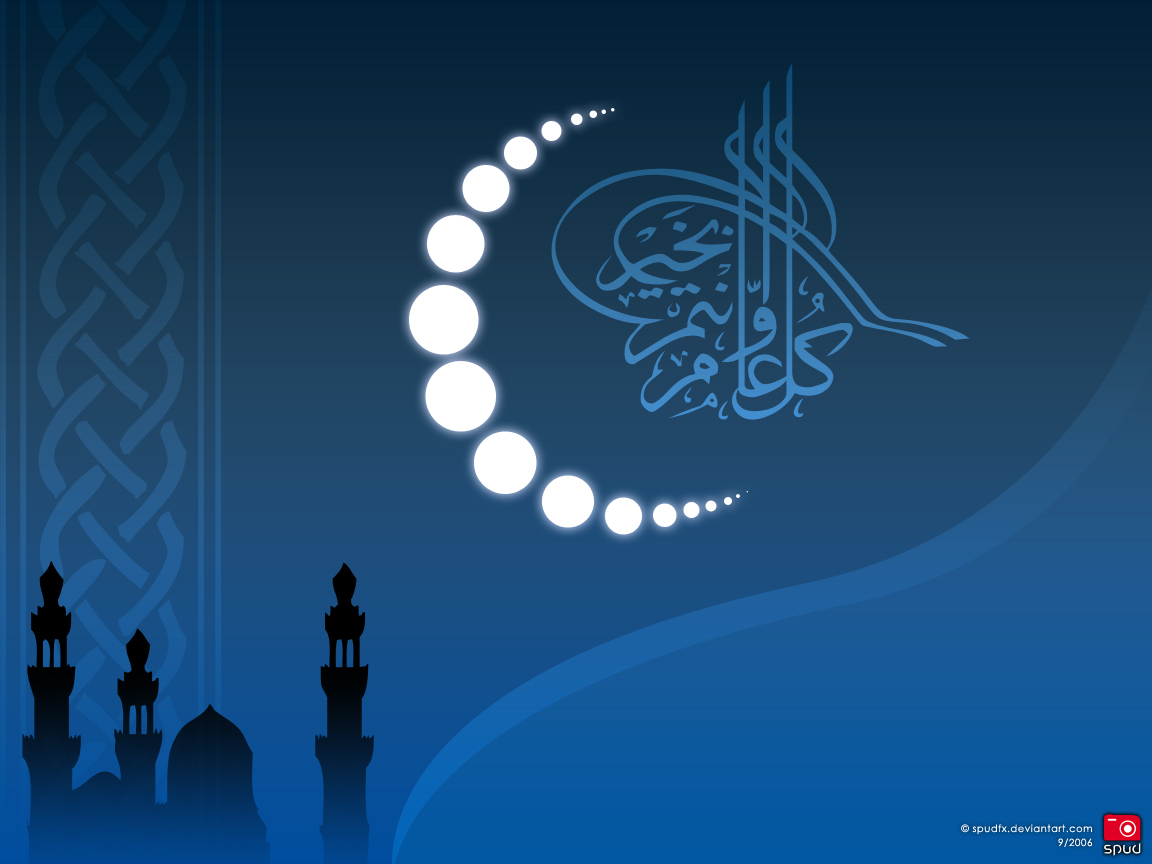Ramadhan
Ramadhan a brief accountEvery Muslim, nay Non-Muslim is aware of the month of Ramadhan. It is without doubt the greatest month of Islamic calendar. Fasting is the third pillar of Islam, primarily intended for spiritually and moral discipline. Fasting has an immense impact on society. For all Muslims, irrespective of status must observe the rules of fasting during Ramadhan. This brings to prominence the essential quality of all Muslims and goes a long way in creating sentiments of love and brotherhood. It is in this month that the Islamic calendar is most alive. Individual Muslims become conscious of this annual event, taking great interest in recording and following the progress of this special month. This subject is indeed vast, for which volumes could be written. Here the object is only to concentrate the various acts and their virtues associated with Ramadhan.
Rewards multiply in Ramadhan
Hazarat Salman radhiallahu anhu reports that on the last day of Shabaan (The Islamic month preceding Ramadhan) the messenger of Allah (Peace be upon him) addressed us and said:
“…O people, there comes upon you a great month, a most blessed month, in which lies a night greater in worth than one thousands months. Allah has made compulsory Fasting in this month and has decreed wakefulness at night (i.e. Taraaweeh) Sunnah. Whosoever tries drawing nearer to Allah by performing any Nafl (optional) deed in this month, for him shall be a reward as if he had performed a Fardh in any other time of the year. And whoever performs a Fardh, for him shall be the reward for seventy Fardh in any other time of the year. This is indeed the month of patience, and the reward for true patience is Jannah; it is the month of sympathy with one’s fellow men; it is the month wherein a true believer’s provisions are increased.” (Sahih Ibn Khuzaymah)
Four deeds in Ramadhan
Hazarat Salman radhiallahu anhu reports on the last day of Shabaan the messenger of Allah (Peace be upon him) addressed us and said:
“…And in this month, four things you should endeavor to perform in great number, two of which shall be to please your Lord, while the other two shall be those without which you cannot make do. Those which shall be to please your Lord, are that you should be in great quantity recite the ‘Kalimah Tayyibah’: Laa ilaaha illal laa, and make much ‘Istigfaar’ (beg Allah for forgiveness with Astagfirullah). And as for those without which you cannot make do, you should beg Allah for entry into Paradise and seek refuge with him from the fire of Jahannam.”(Sahih Ibn Khuzaymah)
Fasting is a shield from…
Abu Ubaidah radhialaahu anhu reports, I have heard The Prophet (Peace be upon him) saying:
“Fasting is a protective shield for man, as long as he doesn’t tear up that protection. (Nasaee)
‘Protective shield’ here means just as a man protects himself with a shield, similarly fasting protects him from the ‘old serpent’, Satan. This shield can be smashed in the following ways:
- Not guarding ones eyes from unlawful sights.
- Not guarding the tongue especially from backbiting and lying.
- Not guarding ones ears from unlawful talk and music.
- Not guarding ones limbs from engaging in unlawful acts.
Sehri (suhoor)
It is described by Hazarat Abu Saeed Khudri radhiallahu anhu that The Prophet (Peace be upon him) said;
“That eating at Sehri is a blessing. If nothing else is available, drink some water. Allah and his angels send blessings to those who eat at Sehri. “ (Ahmed)
It is described by Hazarat Abu Hurayrah radhiallahu anhu that The Prophet (Peace be upon him) has said that;
“The best food for Sehri is dates.” (Abu Daud)
Hazarat Abdullah bin Haris radhiallah anhu reports that The Prophet (Peace be upon him) said:
“Allah has given his blessings in Sehri, so you should never miss it.” (Nasai) Hazarat Abdullah bin Abbas radhiallahu anhu says that the Prophet (Peace be upon him) has said that: “No account will be taken of the food for three persons, provided, their food is from legitimate income? One who fasts, one who eats Sehri and one who maintains horses defence of the frontiers of Islamic state.” (Ahmed)
Iftaari “Whosoever gives something to a fasting person in order to break the fast, for him their shall be forgiveness for his sins and emancipation from the fire of Hell; and for him (the one who gives) shall be the same reward as for him (Whom he fed), without that persons (the one who was fed) reward being diminished in the least.” (Sahih Ibn Khuzaymah, Baihaqee)
Hazrat Aboo Hurayrah radhiallahu anhu says that The Prophet (Peace be upon him) said;
“Break your fast with dates there is divine blessings in it. If dates are not available, break your fast with water, as it is pure.”
I’tikaaf
I’tikaaf is to seclude oneself in a mosque, for the purpose of worshipping Allah, in a specified manner. Hazarat A’esha radhiallahu anha narrates that The Prophet (Peace be upon him) performed I’tikaaf regularly in the last ten days of Ramadhan, till the end of his life. (Bukhari and Muslim) I’tikaaf during the last ten days of the month of Ramadhan is Sunnah. Women may perform I’tikaaf in a specified, secluded area at home. There are Specific ruling related to I’tikaaf which should be consulted from relevant sources.
Laylatul Qadr (Night of Power)
Amongst the nights of Ramadhan, there is one called Laylatul Qadr, noted for its great blessings. The Qur’an confirms that it is more blessed than a thousand months. The specific night wherein Laylatul Qadr exists is not known, although there are indications. From the Ahadeeth we can confer that this night is most probable in the last ten days of Ramadhan and then more probable in the odd nights e.g.. 21st, 23 rd, 25th etc. and then more probable on the 25th and 27th nights. Why was the ‘Night of Power’ been kept secret? There is no definite answer, however many explanations have been put forward. One of which is that had we known the precise location of this night, than most people would not have endeavored to worship Allah in other nights. In the present case, a sincere seeker of this night will worship Allah on most nights. Worshipping throughout the nights of Ramadhan will guarantee oneself Laylatul Qadr. (Summarized: Fazaail e Amaal)
Taraweeh
Hazarat Aboo Hurayrahh radhiallahu anhu narrates that The Prophet (Peace be upon him) said:
“The one who observes the Taraweeh Salaat during Ramadhan, with Imaan and sincere in the hope of gaining reward, all his previous (miner) sins are forgiven.” (Muslim and Bukhari)
Taraweeh is to perform 20 Rakaats of Salaat, in units of two Rakaats after the Esha Salaat. Men will perform the Taraweeh Salaat in congregation, while women will perform them in seclusion at home. It is Sunnah to hear or recite the whole Qur’an in Taraweeh. It is also an emphasized Sunnah to perform the Taraweeh throughout all the nights of Ramadhan.
Last ten days of Ramadhan
Hazrat Aa’esha radhiallahu anhu narrates that The Prophet (Peace be upon him) strove harder and took greater pains to observe worship during the last ten days of Ramadhan than during the other days. (Muslim)
There are greater virtues in the last ten days of (Asharah) of Ramadhan.
Reciting Qur’an
Hazrat Abdullah ibn Abbas radhiallahu anhu narrates that:
“…Every night during Ramadhan, The Prophet (Peace be upon him) recited the Qur’an to the angel Jibraeel (Gabriel) alayhis salaam.” (Bukhari and Muslim)
The recitation of the Qur’an has been given a special emphasis in this month.
Charity
Hazrat Anas ibn Maalik radhdiallahu anhu narrates that The Prophet (Peace be upon him) said:
“…the charity given in Ramadhan has greater excellence than charities of other months.” (Tabraani)
Last night of Ramadhan
Hazrat Abu Hurayrah radhiallahu anhu reports that The Prophet (Peace be upon him) said:
“… In the last night of Ramadhan the decision of forgiveness is taken for my followers.” (Ahmed)
The compiler only dealt very briefly with the significance and virtues of Ramadhan. Notice the simplicity, systematic and comprehensive nature of worship that Allah has timetable. We should not squander our time in idle pursuits but should endeavour to reap the rewards; seizing the opportunity with both hands.
(REF: Islamic Calendar By Siraaj bin Yoosuf Lambat)
